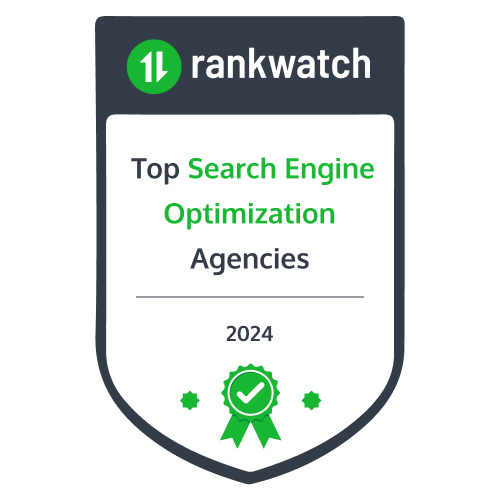According to researchers, an internet user can form an initial impression of your brand in less than two-tenths (0.2) of a second after looking you up. It takes only another 2.6 seconds for their eyes to settle on something that maintains their first impression.
Many of your top clients discover your brand through a Google search. What people see about you online during their first search shapes their decision about whether to explore and learn more about you. Moreover, search engines often reward brands with high authority by ranking them higher in search results than their competitors with lower authority.
Therefore, in this age of technological advancement, it’s extremely important for businesses to properly manage their brands‘ online reputations and authority. A positive reputation can elevate customer loyalty, trust, and revenue, whereas a negative reputation might jeopardize an entity’s success.
This guide provides an overview of how SEO can be a game-changer in strengthening your brand’s reputation and authority.
What Is SEO And How Does It Help Businesses?
Every time you type in a search term and hit “enter,” the search engine gives you a list of results within a second. Generally, users visit the websites ranked at the top of the list because they think that those are the most relevant to their search query.
Securing a position on the first page of these search results is achieved through a rather straightforward marketing technique called SEO (search engine optimization). It is one of the most widely used sales and promotion strategies and helps businesses as well as various other organizations rank their sites higher than competitors on search engine result pages (SERPs).
What Can SEO Do For Your Business?
Search engine optimization is an effective and prolific apparatus for your business website to generate more traffic and quality leads, which in turn, become returning customers.
It enables you to establish and promote your company or brand online while also providing top-notch content to internet users. That’s why most businesses nowadays employ SEO services.
Investing in this particular marketing strategy eventually opens up numerous possibilities. Let’s take a look at the major advantages that a business can gain from SEO –
- SEO serves as the primary source of traffic for your business website.
- Focuses on the entire marketing funnel.
- Provides 24/7 promotion.
- Improves brand visibility.
- Enhances your website’s user experience.
- Helps you generate high-quality leads.
- Boosts your PPC success.
- Gives you valuable insights.
- Facilitates high ROI and conversions.
- SEO is a long-term marketing strategy that delivers perpetual and non-stop results throughout its whole duration and is extremely cost-effective.
Top SEO Benefits For Brand Reputation And Authority
The success of a business is heavily influenced by its brand reputation and authority. These factors affect how customers perceive the company and make purchasing choices.
When it comes to boosting your brand’s reputation and authority online, SEO is indeed your best friend. Here are 11 key reasons why –
-
Amplifies Brand Awareness:
Search engine optimization plays a huge role in building brand awareness and recognition online. Appearing at the top of search results for relevant keywords will substantially increase visibility and exposure for your brand.
Whether users click on your website or not, simply seeing your brand listed prominently in search results can leave a lasting impression and contribute to brand recall. Over time, this increased visibility can lead to greater brand recognition and loyalty among consumers.
-
Reaches The Entire Target Audience:
SEO enables you to reach a wider audience of potential customers who are actively searching for products or services like yours. By optimizing your website for relevant keywords and phrases, you can ensure that your content appears in front of the right people at the right time.
This targeted approach not only increases the likelihood of converting leads into customers but also helps you connect with individuals who are already interested in what you offer.
-
Drives High-Quality Traffic To The Website:
One of the key benefits of SEO is its ability to attract high-quality traffic to your website. Unlike other forms of marketing that rely on interrupting consumers, SEO targets individuals who are actively searching for information, products, or services related to your niche.
-
Improves Brand Credibility:
When your brand consistently appears at the top of search engine results pages, it organically gains more credibility in the eyes of customers. The majority of people tend to trust websites that rank higher in search results, as they consider those businesses to be more reputable and authoritative.
Therefore, if your site is optimized for relevant keywords and boasts valuable, high-quality content, your brand gets significant mileage in establishing itself as a trusted leader in your industry.
-
Delivers Impressive ROI:
Investing in SEO isn’t just a shot in the dark—it’s a smart business move that delivers tangible returns on investment (ROI). If your website and content are search engine optimized, your chance of attracting more organic traffic increases. This often translates into more leads, sales, and revenue for your business.
Plus, the long-term effects of good SEO can continue to benefit your brand well into the future. Thus, it proves to be a cost-effective digital marketing strategy.
-
Boosts PPC Success:
While pay-per-click (PPC) advertising can be a successful way to drive traffic to your website, it can also be expensive and competitive. However, incorporating SEO best practices into your PPC campaigns can improve their collective effectiveness and reduce costs.
Optimizing landing pages, improving ad relevance, and targeting the right keywords increase click-through rates, lower cost-per-click, and ultimately achieve better results from your PPC efforts.
SEO and PPC may seem like separate strategies, but when combined, they can deliver powerful results that drive growth and success for your brand.
-
Optimizes User Experience:
One of the core principles of SEO is to enhance the user experience on your website. Higher site speed, clean navigation, and a mobile-friendly design are imperative to offer your visitors a seamless and pleasant browsing experience.
When users find a website easy to navigate and fast-loading, they are more likely to stay longer, explore more pages, and eventually transition into prospective leads.
-
Efficient Long-Term Marketing Strategy:
Unlike some other digital marketing tactics that only produce short-term results, SEO is a bonafide long-term strategy that builds sustainable growth over time. With consistent optimization of your content for search engines, you can maintain and exponentially improve your rankings and drive continuous traffic and leads to your site.
This long-term approach to SEO ensures that your brand remains visible and competitive in the ever-changing digital landscape.
-
Expands Local Marketing Efforts:
For businesses targeting local customers, SEO is essential for expanding your reach within your geographic area and demographic. Focusing on local search terms and creating location-specific content are instrumental in increasing visibility in local search results and drawing more foot traffic to your physical storefront.
Whether you are a small business or a multinational corporation, local SEO can be a masterstroke for connecting with customers in your community and driving growth.
-
Generates Measurable Results:
One of the unique aspects of SEO that sets it apart from other digital marketing methods is its measurability. With tools like Google Analytics, you can track and analyze various metrics to assess the performance of your SEO efforts.
This practice allows you to have a comprehensive understanding of your organic traffic, keyword rankings, conversion, and bounce rates. These insights are immensely useful for evaluating how your website is performing in search results.
This data-driven approach enables you to make informed decisions and refine your SEO strategy to achieve better results as time goes by.
-
Increases Business Revenues:
At the end of the day, search engine optimization’s end goal is to drive business growth and increase revenues. This marketing approach has a direct and significant impact on your bottom line in terms of drawing in more qualified leads, boosting conversion rates, as well as customer lifetime value.
Whether you are an e-commerce retailer, a service provider, or a brick-and-mortar store, investing in SEO can yield substantial returns and contribute to the overall tangible and intangible success of your business.
Types Of SEO For Your Business
SEO essentially helps businesses across all industries, backgrounds, and sizes get greater recognition in online search results. But before you can adopt this concept for your business, you need to know about the available types of SEO and decide which ones you should try to attain the most impact.
Let’s break down the different types of SEO –
-
Technical Optimization:
Technical optimization works as the backbone of your website’s SEO. It makes sure that your site is easy for search engines to crawl and understand. This type of SEO includes optimizing page speed, ensuring the mobile-friendliness of the site, fixing broken links, etc.
-
Content Optimization:
It focuses on creating high-quality content that is lauded by your audience as well as impeccably optimized for search engines. The desired outcomes are implemented through the strategic use of relevant keywords in the content, formulation of engaging titles and meta descriptions, and smooth content management so that both users and search engines find your pages easy to navigate.
-
Off-Site Optimization:
Off-site optimization refers to activities done outside of your website in order to improve your search engine rankings. It deals with building backlinks from reputable sites, engaging with your audience on social media platforms, getting your business listed in online directories, etc.
-
SEO Specialties:
There are also other specialized areas of SEO that cater to specific aspects of optimization. Some examples are – local SEO, which helps businesses improve their visibility in local search results, and e-commerce SEO, which is tailored to the unique needs of online stores.
Understanding these different types of SEO and how they work is quintessential for developing a comprehensive marketing strategy for your brand.
Key Takeaways
Upholding your reputation and authority online is paramount for maintaining an edge over your competitors. This can only be achieved by gaining customer trust and engagement. However, it’s a complex process that demands extensive knowledge of SEO and online user habits.
A robust SEO plan can assist you in strengthening your digital marketing campaign, overcoming detrimental search results, optimizing your Google Business Profile, and building links to favorable search results.
Frequently Asked Questions
How Long Does It Take To See Results From SEO Strategies?
The timescale for seeing results from your SEO efforts may vary depending on various factors, such as the competitiveness of your industry, the overall quality of your website, the strategies you’ve previously implemented, etc.
However, generally speaking, it’s common to start seeing some improvements within a few weeks to a few months after implementing good-quality SEO strategies. That said, significant results often take longer – typically six months to a year, or more.
It’s important to keep in mind that SEO is a long-term investment in the success of your brand. While it may take time to see tangible results, the benefits, such as – increased organic traffic, higher SERP rankings, and improved visibility – will have a lasting impact on your business’s online presence. So, patience and persistence are key when it comes to SEO.
Is SEO Success Guaranteed?
No, SEO success is not guaranteed. While implementing effective SEO strategies has the possibility of improving your site’s visibility and increasing organic traffic, there are no guarantees in the ever-evolving landscape of search engine algorithms and user behavior.
Success in SEO depends on various factors such as the competitiveness of your industry, the quality of your website and content, the relevance of your keywords, and the consistency of your optimization efforts, etc.
Additionally, search engines like Google frequently update their algorithms, which can impact your rankings.
Can SEO Strategies Be Expensive?
Yes, SEO strategies can sometimes be expensive, but compared to many other digital marketing approaches, they are much more cost-effective and provide high value for money.
The cost of an SEO plan can vary widely based on several factors such as –
- Doing it yourself vs hiring professional services
- The level of expertise and time invested
- The scope of work
- Prices of the SEO tools used
- Formulating customized strategies
- The Quality of content creation
- The amount of technical SEO required
- The duration of continuity




